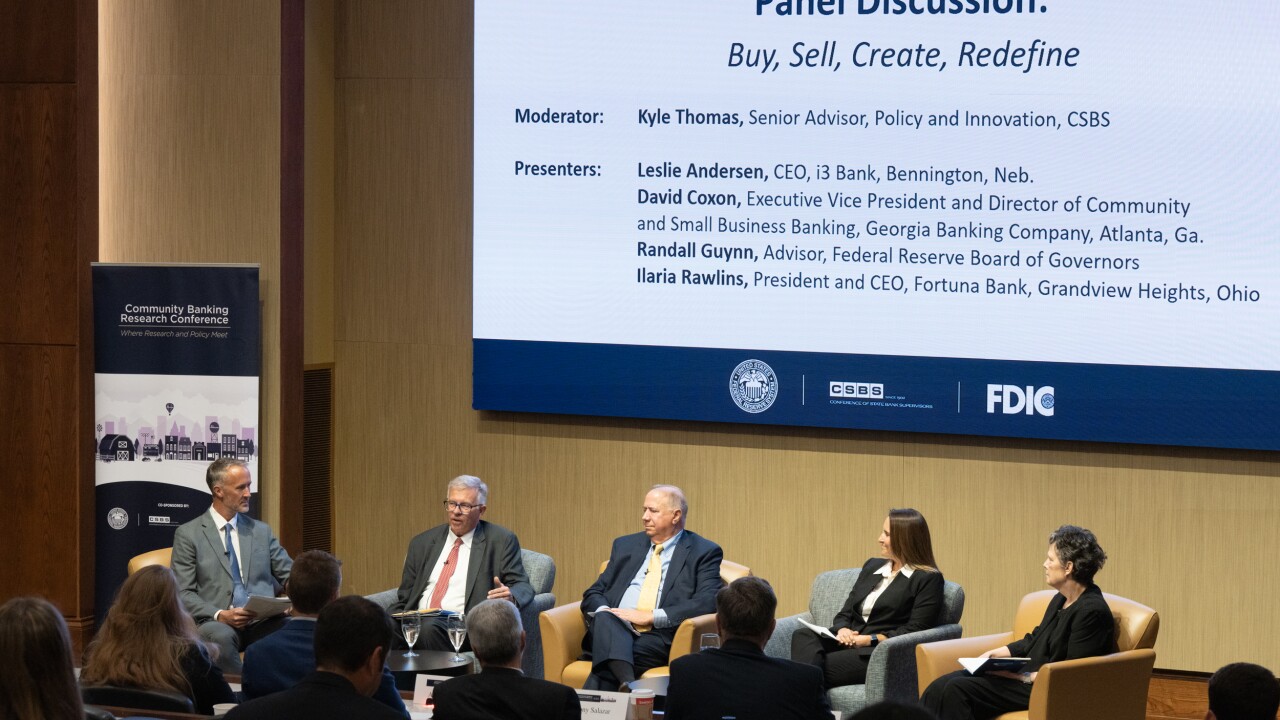The Federal Reserve is using Custodia Bank's own marketing materials to refute the company's claim that it poses no new risks to the central bank's payment system.
The Fed pointed to Custodia press releases in which the Wyoming-chartered institution describes itself as a "first-of-its-kind digital asset bank" and details its plan to launch a stablecoin as evidence that the firm's business model warrants more time to scrutinize than that of a traditional bank.
"In sum, Custodia's request raises technical, complex, and novel issues that present risk to" the Federal Reserve Bank of Kansas City "and that potentially have implications for the stability of our nation's payment system," the Fed stated in a U.S. District Court of Wyoming filing on Tuesday.

The filing is the latest in Custodia's lawsuit with the Fed over the company's pending application for membership and a master account with the Kansas City Fed. If granted an account, Custodia would be able to make deposits into the Federal Reserve System and access its payment networks.
Custodia, a digital asset custody and payment provider, filed its suit against the Fed in June. It seeks a court order compelling the central bank to make a decision on its master account application, which has been pending for nearly two years.
In August, the Fed filed a
Last month, Custodia was
In this week's filing, the Fed pushed back against these arguments. It argued that Custodia and its allies were misinterpreting the laws governing the Fed in several ways. It noted the administrative laws to which the Fed Board of Governors is subject do not apply to the regional reserve banks. It also asserts the right of the reserve banks to decide whether an organization could be granted an account without creating undue risks to the financial system.

Many of Custodia's arguments and the Fed's subsequent responses deal with the question of whether the reserve banks are agents of the government, extensions of the Fed Board of Governors or independent, private entities. The Fed argues that Congress made the board and the reserve banks separate entities and made each reserve bank its "own juridical entity, with its own capacity '[t]o make contracts' and '[t]o sue and be sued.' "
Because the matters raised by Custodia are matters of constitutional and administrative law, any decision rendered by the court could have broad ripple effects, the Fed noted. Because of this, it said, the court should allow the Kansas City Fed time to reach a decision on Custodia's application to avoid injecting itself into the matter before all the facts are settled.
Should the motion to dismiss not be granted, the Fed requested that the court take a limited scope. It argued that "prudence counsels doing so without unnecessarily ruling on complex issues with potential ramifications for the careful balance Congress has created with the Federal Reserve System — including potential consequences far beyond this case — so that the Court may consider those issues, if necessary, with the benefit of a full record."




